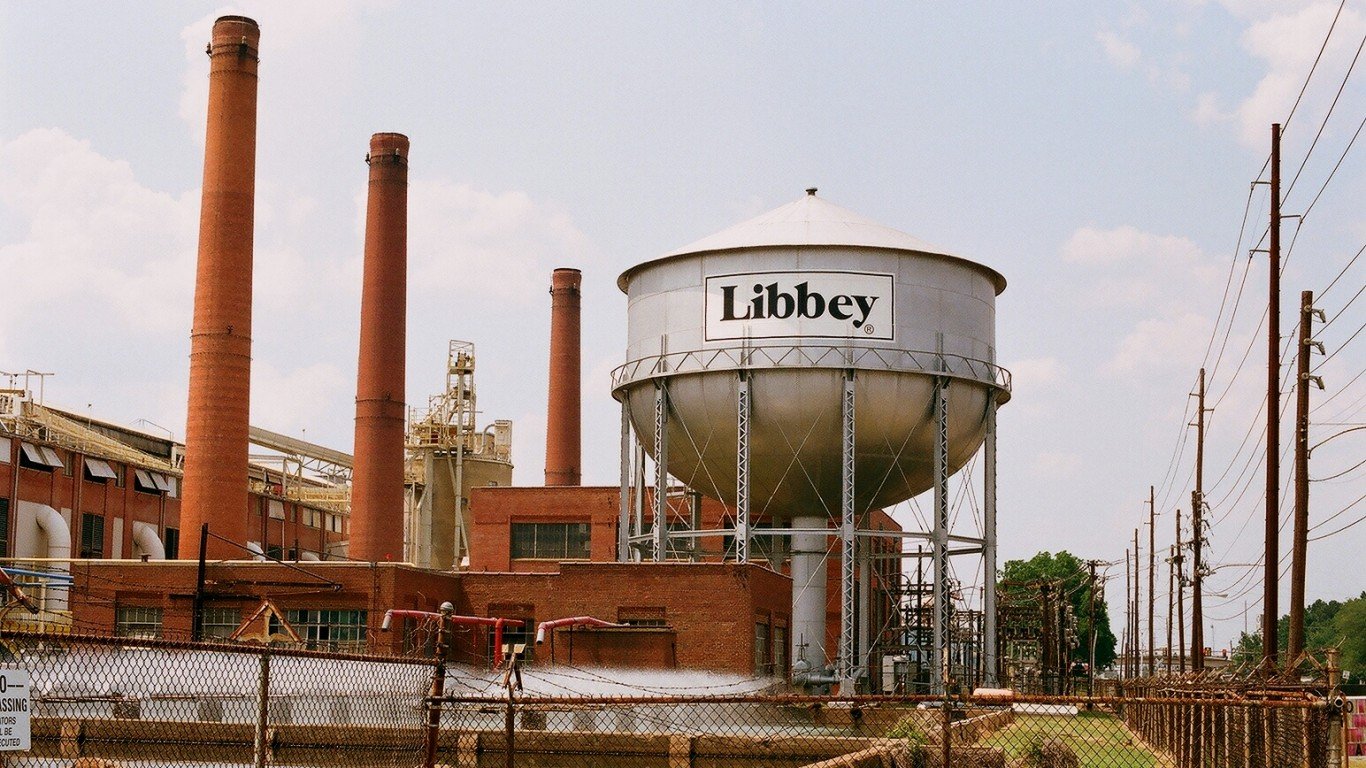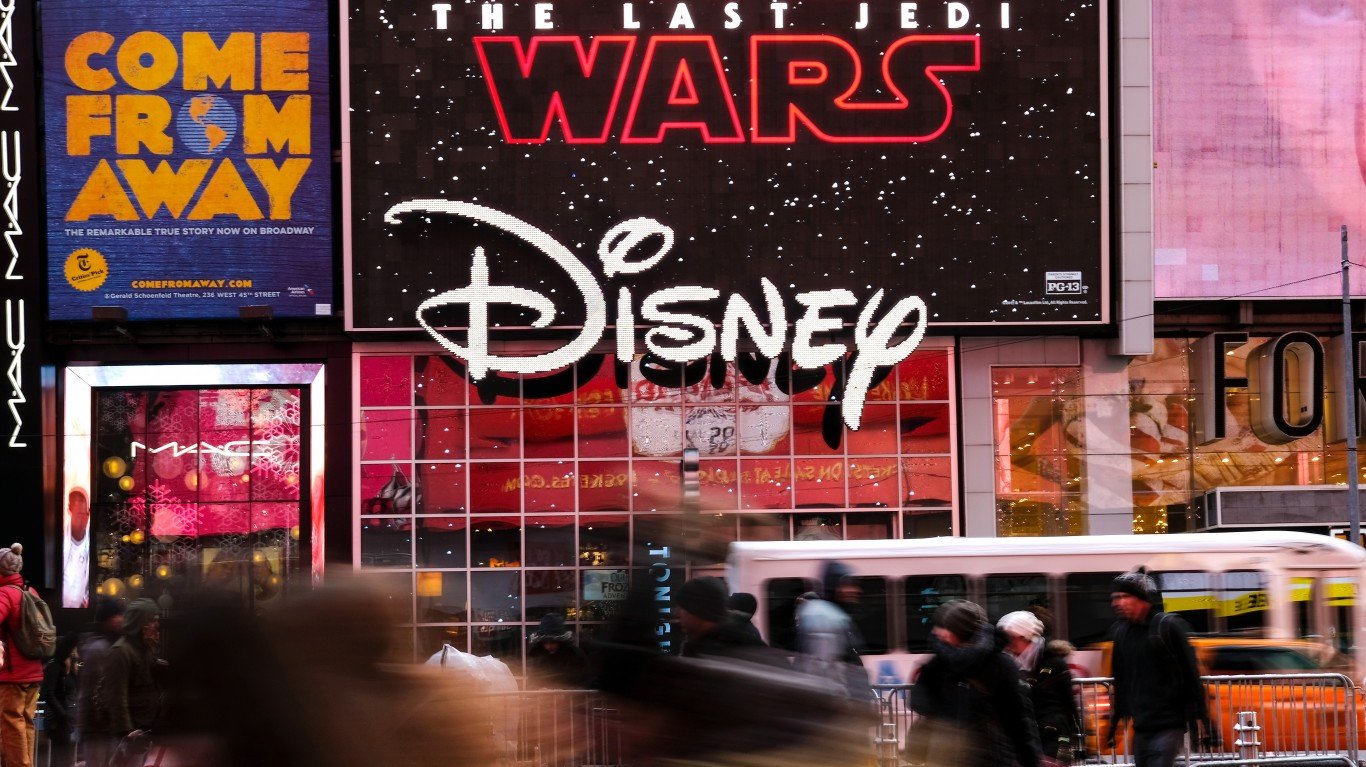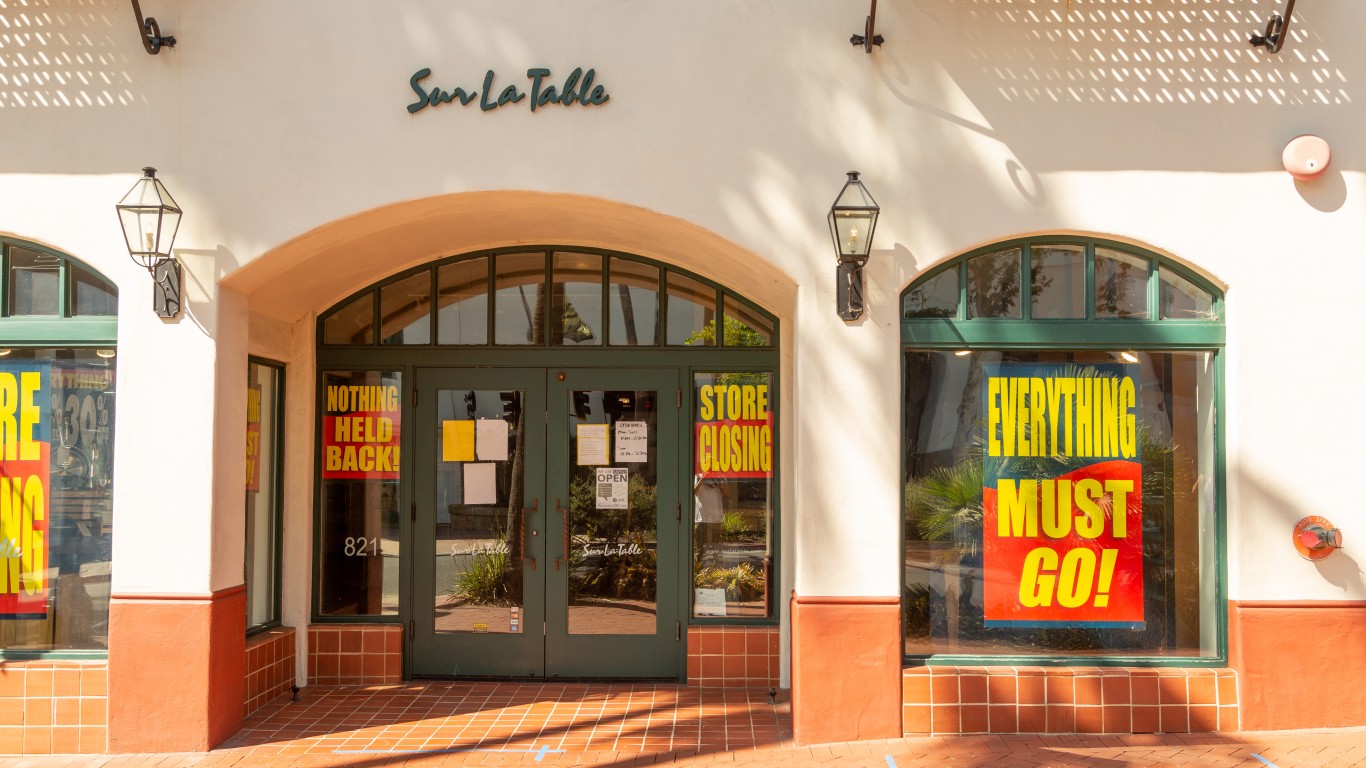

Numerous American companies struggled to stay afloat throughout the COVID-19 pandemic, which reshaped daily life and rendered some types of businesses unable to function. Economists at the Federal Reserve estimated that 200,000 more businesses closed in 2020 as compared to previous years.
People who run smaller companies generally decide to simply close up shop if their business flounders. But major corporations often choose to file for Chapter 11 bankruptcy protection to reorganize their finances — an option that can be prohibitively expensive for many organizations. Many of America’s largest and most well-known brands filed for bankruptcy largely due to the pandemic.
24/7 Wall St. reviewed court filings, media reports, and industry analysis in order to compile a list of major American brands that went bankrupt during coronavirus.
Many of the brands that declared bankruptcy operate in one of several sectors, as social distancing restrictions and public health measures disproportionately affected certain types of businesses. For instance, live events were virtually all canceled, and brick-and-mortar retailers lost a huge share of their business as foot traffic declined.
The economic impact was felt differently across the country. States with thriving tech sectors largely avoided the worst economic fallout of the pandemic, while states that relied heavily on energy and resource extraction faced more severe effects. These are the state economies hit hardest by COVID-19.
For most of the companies that went bankrupt during the pandemic, COVID-19 wasn’t fully to blame. Many had already had debt burdens in the hundreds of millions or even billions of dollars due to leveraged buyouts from private equity firms or mismanagement from executives. These are the worst-run companies of 2020.
Click here to see American brands that went bankrupt during COVID.
1. Neiman Marcus
> Industry: Luxury goods
Luxury department store chain Neiman Marcus filed for Chapter 11 bankruptcy protection on May 7 in an attempt to restructure its debt and survive the harsh economic conditions created by the coronavirus pandemic. The chain’s problems had been compounded by the recent precipitous drop in sales of luxury goods, which were likely some of the first purchases to be postponed during the pandemic.
Neiman Marcus emerged from bankruptcy in September 2020 under new ownership and a plan that would eliminate $4 billion of debt. In March 2021, the retailer refinanced an additional $1.1 billion of debt, though its future is still uncertain and will largely depend on the continued improvement of the retail sector overall.
[in-text-ad]
2. JCPenney
> Industry: Retail
JCPenney’s multi-billion dollar debt load, combined with the chain closing most of its stores nationwide because of COVID-19, has cast the company’s future into doubt. The company officially filed for bankruptcy in May and announced the closure of hundreds of its stores.
JCPenney emerged from bankruptcy in December. The brand will now be jointly owned and operated by Simon Property Group and Brookfield Asset Management, who had previously been the retailer’s main lenders and landlords.
3. J. Crew
> Industry: Clothing
Weeks after closing its doors on March 16, J. Crew filed for Chapter 11 bankruptcy. The company also said it reached an agreement with its lenders to convert more than $1.6 billion of the company’s debt into equity. J. Crew also secured a $400 million loan. Even before the pandemic, the company had struggled with a significant debt load following a private equity buyout.
J. Crew exited bankruptcy in September 2020, with courts approving a plan for lender Anchorage Capital Group to take control of the business as majority owner.
4. Frontier Communications
> Industry: Communication services
Telecommunications company Frontier Communications entered the pandemic in a dire situation, with a debt burden of more than $17 billion. The telecom provider also carried a credit rating of SD (selective default), meaning credit rating agency Standard & Poor’s believed Frontier decided to default on at least one financial obligation but could meet other obligations.
In an attempt to reduce its debt, Frontier declared bankruptcy in April and sold its operations and assets in four northwest U.S. states. Frontier’s stock has been in decline for years and was worth less than 8 cents per share as of May 8.
[in-text-ad-2]
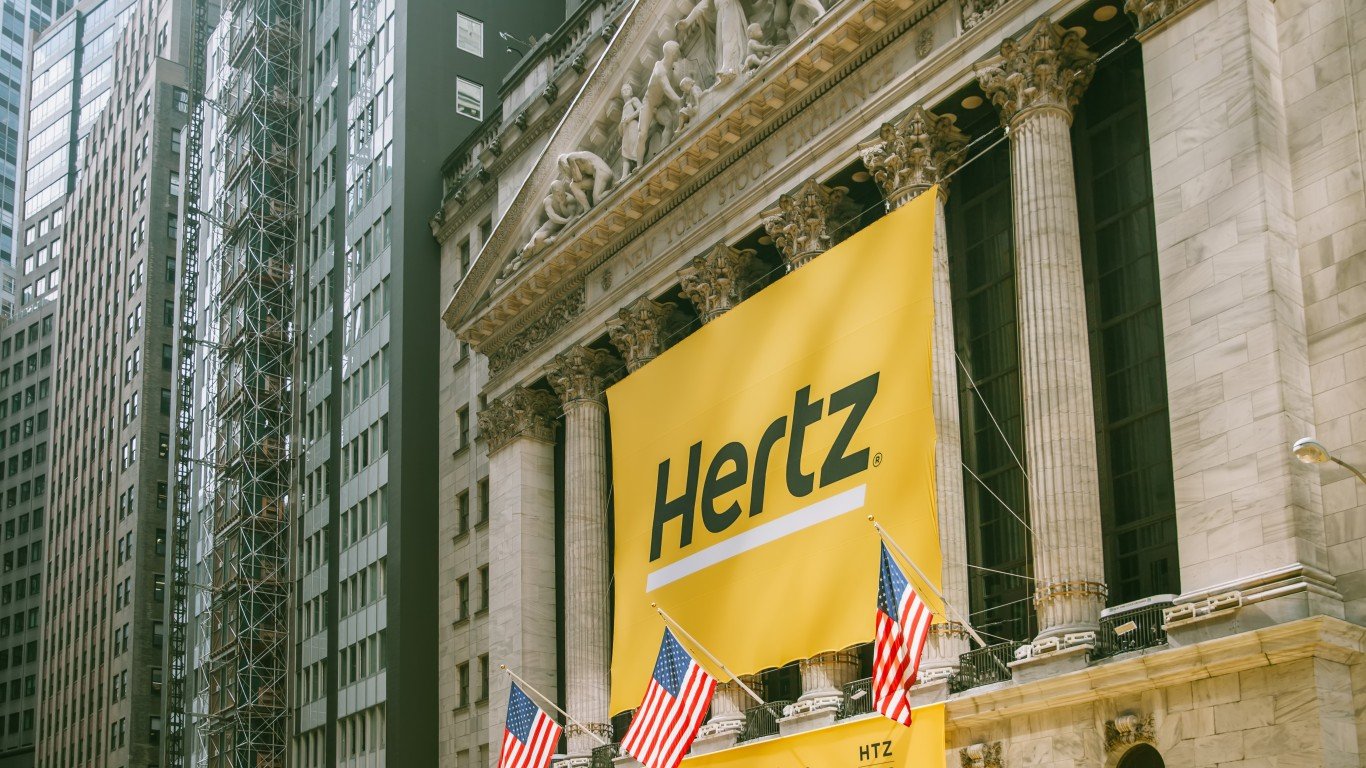
5. Hertz
> Industry: Car Rental
With nonessential travel all but canceled for months, car rental company Hertz struggled with a lack of income. The company filed bankruptcy in May 2020 to restructure an estimated $19 billion in debt. Hertz announced a plan to cut nearly 10,000 jobs in April, but the company still failed to make some lease payments that month.
Nearly a year later, the company is still trying to exit Chapter 11 proceedings. In May 2021, reports emerged that several firms were bidding to take over the car rental giant. Any bid would need to be approved by a judge.
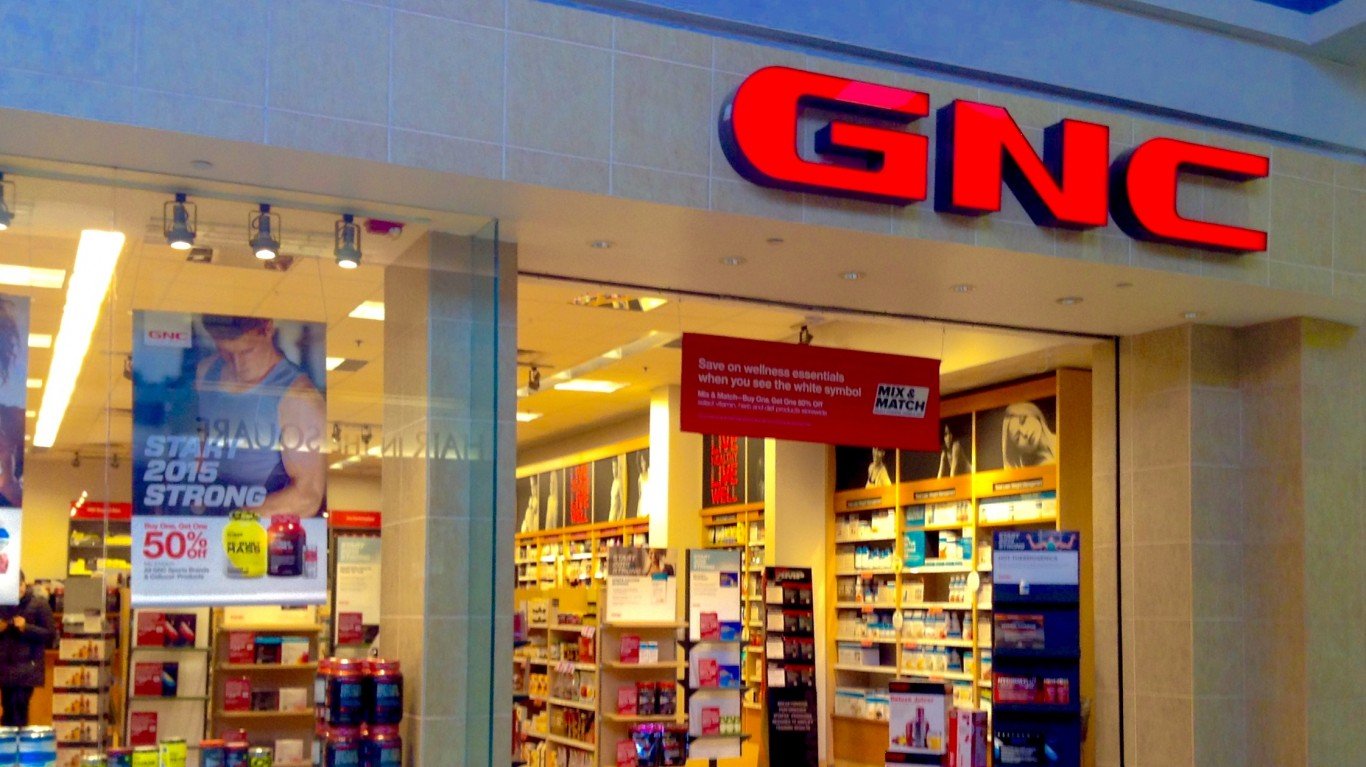
6. GNC Holdings
> Industry: Health and fitness products
Supplements and vitamins seller GNC saw its sales decline during the pandemic — in part because it relied heavily on in-person sales instead of online sales. GNC furloughed “a significant portion” of its 12,400 employees in the early days of the pandemic, and filed for bankruptcy protection in June 2020. The company had already been struggling ahead of the pandemic, announcing its plans in late 2018 to close around 900 stores throughout the next few years.
In October, GNC’s largest shareholder, China-based Harbin Pharmaceutical Group, reached an agreement to buy nearly all of GNC’s remaining assets for $750 million. This was in spite of concerns from Florida Sen. Marco Rubio that the sale would give the Chinese government access to sensitive medical data from customers.
[in-text-ad]
7. Ruby Tuesday
> Industry: Restaurant
Casual dining restaurant chain Ruby Tuesday had been struggling financially long before the COVID-19 pandemic forced restaurants nationwide to temporarily close. The company’s nationwide presence has been declining for years — from 945 U.S. locations in 2007 to less than 500 today. Throughout the pandemic, a number of closed Ruby Tuesday locations announced that they will not be reopening.
After filing for bankruptcy in October 2020, the company quickly gained approval to find a new buyer. In February 2021, a judge approved the plan for lenders Goldman Sachs and TCW Direct Lending to take over the Ruby Tuesday brand. The company announced plans to focus more on delivery-only services in the future.
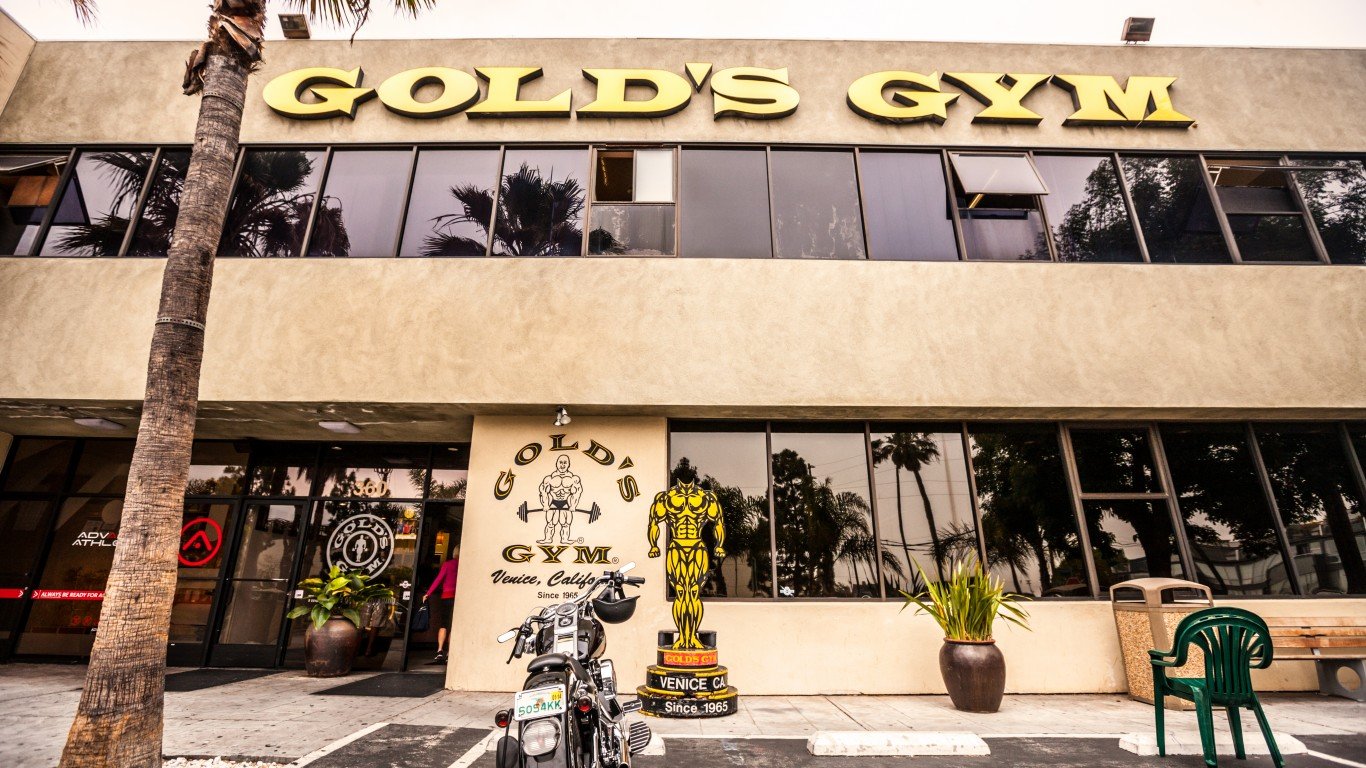
8 Gold’s Gym
> Industry: Fitness
Bans on crowds of more than 10 people indoors across the nation spelled disaster for large gym chains like Gold’s Gym. The gym company filed for bankruptcy in early May. CEO Adam Zeitsiff pledged that Gold’s Gym would reopen, but it already had to permanently close 30 company-owned locations amid the pandemic.
In July, Berlin-based RSG Group purchased Gold’s Gym and all of its assets for an estimated price of $100 million, according to a press release from the company.

9. Chesapeake
> Industry: Energy
The global oil industry was devastated by a historic plummet in oil prices stemming from a lack of demand globally during the early days of the pandemic and a price war between Russia and Saudi Arabia. In April 2020, the price of West Texas Intermediate oil futures set for May 2020 fell below zero for the first time. Chesapeake Energy was one of the companies that was most negatively affected by these events, and the company was forced to declare bankruptcy in June 2020 in an attempt to shed nearly $8 billion in debt.
Chesapeake exited bankruptcy in February 2021, with CEO Doug Lawler saying the company has “fundamentally reset” its business in the process. It equitized $7.8 billion of debt, and laid off more than 200 employees.
[in-text-ad-2]
10. Pier 1 Imports
> Industry: Retail
In early 2020, Texas-based home goods retailer Pier 1 Imports filed for Chapter 11 bankruptcy protection. Before filing, the company announced plans to shutter 450 of its 942 stores. The closures included all of the company’s locations in Canada. The announcement was the continuation of a longer term trend. Less than one year earlier, in April 2019, Pier 1 reported the imminent closure of as many as 145 of its stores.
The company’s search for a buyer during the COVID-19 pandemic, however, proved futile, and in a May 2020 press release, the company announced it was going out of business and would permanently close all locations. The company’s intellectual assets were purchased by Retail Ecommerce Ventures, which relaunches defunct brands as online stores.
11. Chuck E. Cheese
> Industry: Dining and entertainment
CEC Entertainment, the parent company of Chuck E. Cheese and Peter Piper Pizza, declared bankruptcy in June of 2020. The businesses offer pizza, games, and entertainment for children — a business model that collapsed virtually overnight.
In addition to lost revenue, the company had roughly $1 billion in long-term debt adding to its financial strain. Just before the end of the year, CEC Entertainment exited Chapter 11 protection after restructuring over $700 million in debt and replacing much of its executive board.
[in-text-ad]

12. Remington
> Industry: Firearms
Gun manufacturer Remington filed for bankruptcy in July of 2020. The gun maker has been in dire financial straits for years, filing for bankruptcy also in 2018. The company had been in talks with the Navajo Nation as a potential buyer ahead of its second filing, but those negotiations apparently amounted to nothing.
The filing came on the heels of record high gun sales in the United States, amid unrest following the murder of George Floyd at the hands of police. Yet before gun sales broke records in 2020, they had been in decline. Gun owners tend to buy guns when they fear the government could restrict access, sosales typically slump when more pro-gun politicians are in power. In October 2020, Remington’s assets were broken up and sold off to a number of buyers in a bankruptcy auction.

13. Sur La Table
> Industry: Retail
Though cooking at home became more common during the pandemic, Sur La Table struggled. The luxury kitchen goods retailer was especially vulnerable to the pandemic compared to other brick-and-mortar retailers as the store is known for its in-house cooking classes.
Sur La Table filed for Chapter 11 bankruptcy in July 2020. In August, it was purchased in a joint venture between CSC Generation and Marquee Brands LLC for just under $90 million. The company said it would close dozens of its 120 stores.
14. Brooks Brothers
> Industry: Retail
Even before the COVID-19 pandemic, high-end clothing retailer Brooks Brothers had struggled, as the dress code began to relax at many American businesses. With most people working from home during the pandemic, demand for upscale clothing plummeted. In June, the company laid off hundreds of workers and shuttered three factories, before formally declaring bankruptcy a month later.
In August, Brooks Brothers was purchased by a joint venture between Simon Property and Authentic Brands Group for $325 million.
[in-text-ad-2]
15. Guitar Center
> Industry: Retail
Major music retailer Guitar Center filed for bankruptcy in November. Like many other companies that filed for bankruptcy amid the pandemic, Guitar Center had already been struggling with a major debt burden stemming from a private equity takeover even before COVID-19 altered the economic landscape.
Even before Guitar Center declared bankruptcy, it had a restructuring plan in place. This allowed the business to reduce its debt burden by over $800 million while securing hundreds of millions in new investments, secured notes, and more.

16. Intelsat
> Industry: Satellite communications
Intelsat has been launching satellites to provide services like TV and internet for more than 50 years and is the world’s second biggest satellite company by revenue. In May 2020, it filed bankruptcy largely because its services that provide communications to travelers went largely unused as most travel had stopped due to virus concerns.
Ahead of the pandemic, Intelsat carried a nearly $15 billion debt load, which became untenable as the company needed to spend hundreds of million of dollars to upgrade its network to new technology. As of April 2021, the company was still struggling to appease creditors with its plan for restructuring.
[in-text-ad]
17. Dean & DeLuca
> Industry: Groceries
Gourmet grocery chain Dean & DeLuca was one of the first companies to go bankrupt amid the COVID-19 pandemic. The company filed for bankruptcy protection at the end of March 2020.
The company had struggled well before that. After being purchased in 2014 by Thai real estate company Pace Development, Dean & DeLuca expanded its footprint. By 2018, the company faced lawsuits over accusations it had failed to pay its vendors. The grocer emerged from Chapter 11 in January 2021 after eliminating over $300 million in debt.
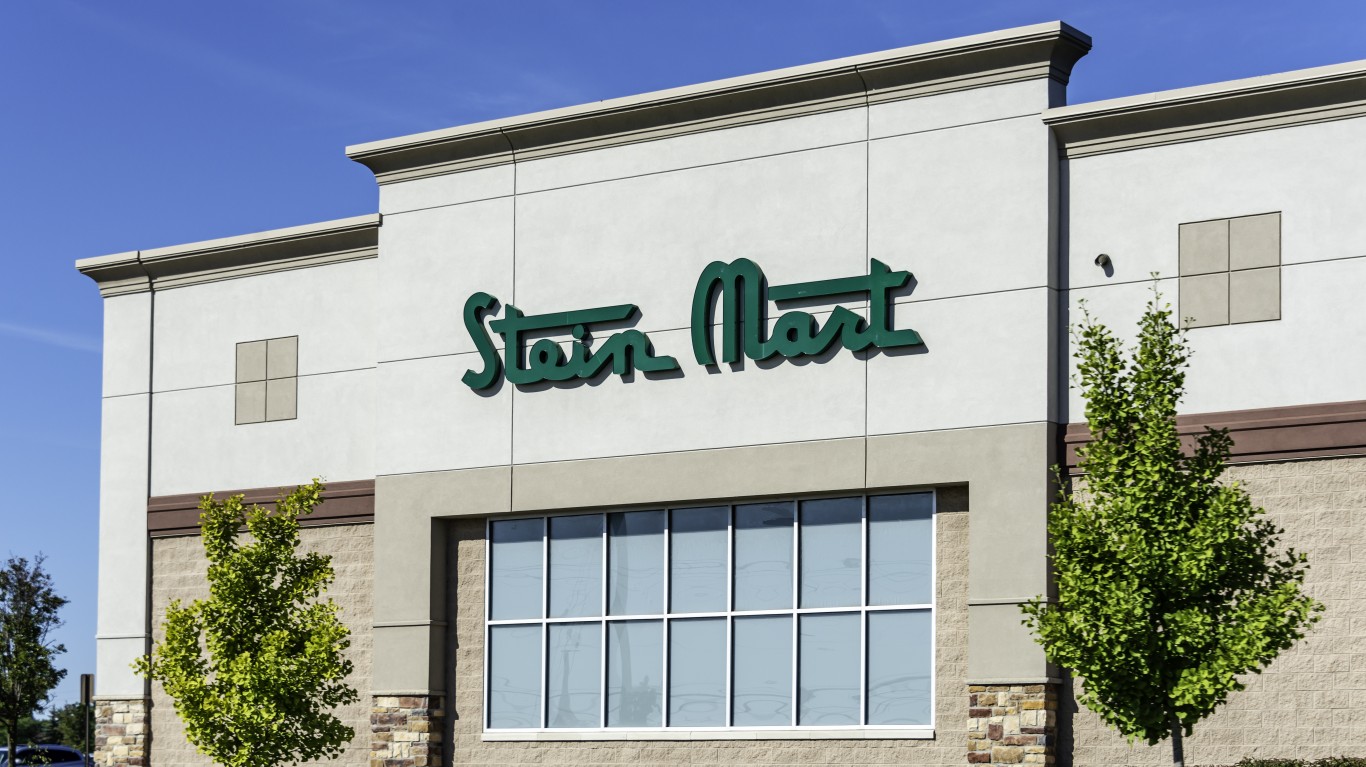
18. Stein Mart
> Industry: Retail
Like many other retailers, department store chain Stein Mart struggled during the pandemic due in large part to a lack of foot traffic to its retail locations. In the first quarter of 2020, Stein Mart sales fell by over 50% compared to the same quarter the previous year, and its debt ballooned to over $200 million. The company filed for bankruptcy in August of 2020.
In December, the Stein Mart nameplate, brands, online domains, and more were purchased at a bankruptcy court auction by Retail Ecommerce Ventures, which takes struggling brick-and-mortar brands and turns them into online ventures. Its nearly 300 stores were closed.
19. Alamo Drafthouse
> Industry: Movie theaters
Alamo Drafthouse is a movie theater chain that serves food and drinks to patrons during films. As indoor dining and gatherings were suspended nationwide, the company’s revenue dried up. Though it held out longer than the majority of other companies on this list, Alamo Drafthouse eventually had to declare bankruptcy in March 2021.
The company said it would sell basically all of its assets to investors and close three of its 40 locations as part of the company’s bankruptcy restructuring. Operations, however, will continue as normal.
[in-text-ad-2]
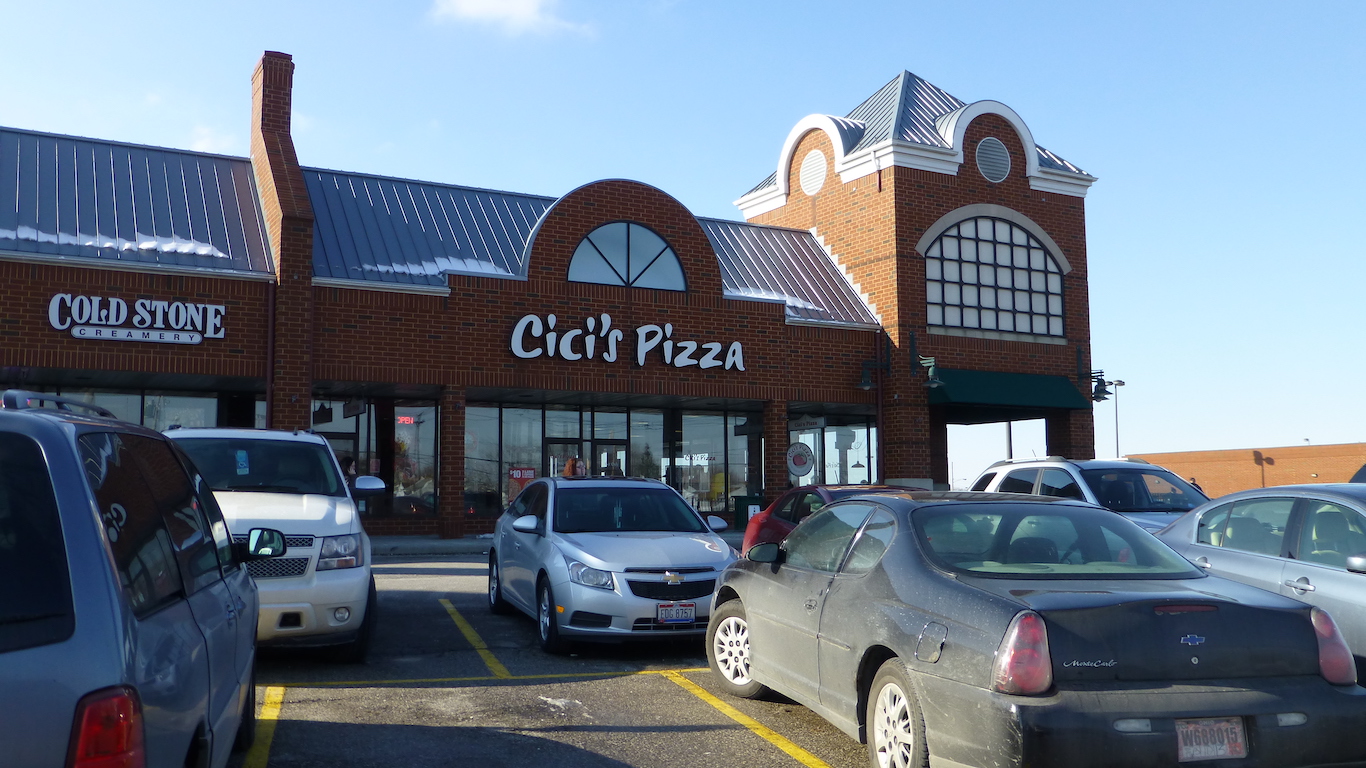
20. Cici’s
> Industry: Restaurant
Like many other buffet-style restaurants, pizza chain Cici’s struggled amid the pandemic as consumers typically opted for pickup or delivery, if they were not cooking for themselves. Even prior to the pandemic, buffets had seen diminishing sales.
Cici’s, which has over 300 locations nationwide, filed for bankruptcy in January 2021, announcing its plans to sell its assets to its main lender D&G Investors. A month earlier, D&G Investors purchased $82 million of Cici’s debt.

21. Cirque du Soleil
> Industry: Entertainment
Cirque du Soleil is one of the most well-known entertainment brands around the world, producing traveling acrobatics and circus shows around the world as well as several shows in residency in Las Vegas. With live events grinding to a halt in 2020, the company filed for bankruptcy protection in June 2020.
Around the time of its filing, Cirque du Soleil was reportedly struggling with around $1 billion in debt. The company had to lay off some 3,500 people to stay afloat amid the pandemic. The Montreal-based company received hundreds of million in new funding and support from the Quebec government to provide economic relief and help the company restart live events.
[in-text-ad]
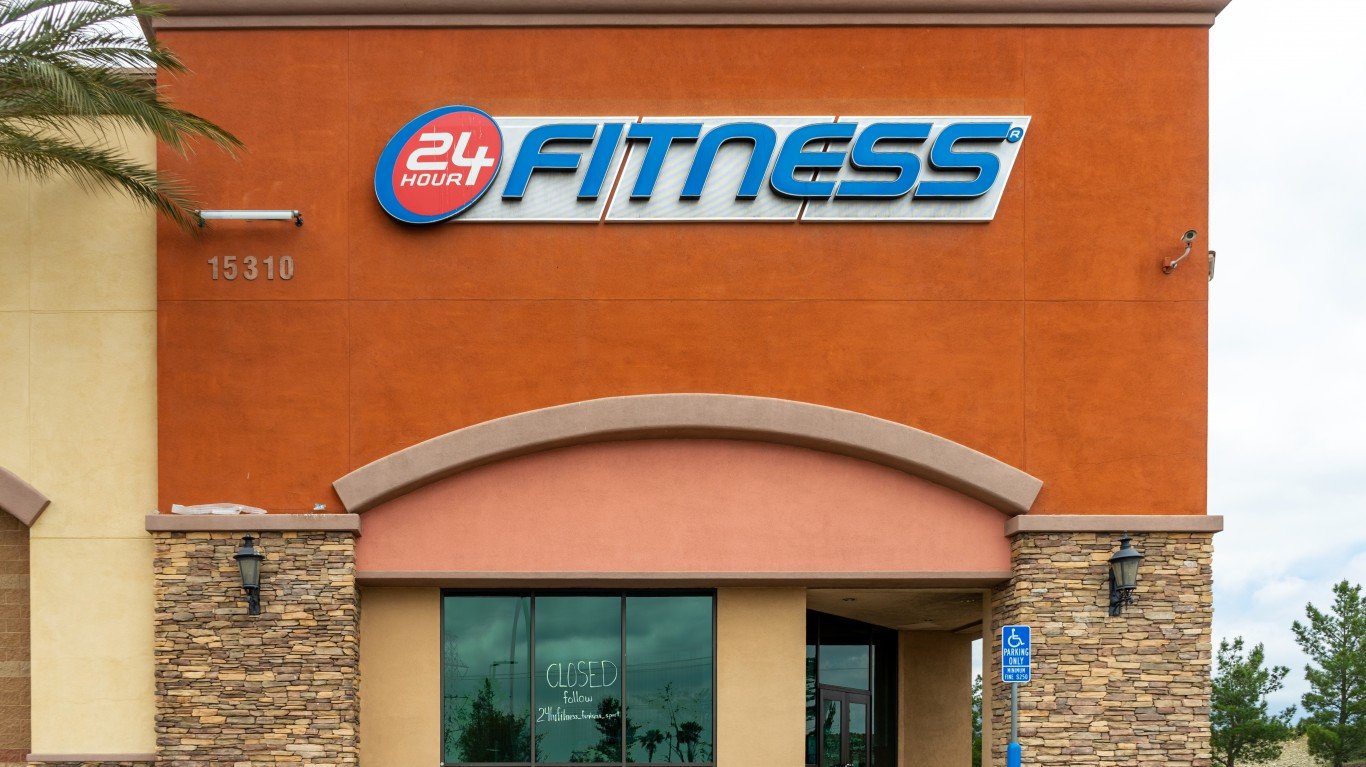
22. 24 Hour Fitness
> Industry: Fitness
Gyms around the country, including 24 Hour Fitness, were shuttered as a result of COVID-19. The pandemic only served to add to the challenges chains like 24 Hour Fitness were already facing as Americans switched to cheaper gyms, boutique fitness options like spin or barre classes, or home fitness options like Peloton.
24 Hour Fitness filed for bankruptcy on June 15, blaming its struggles on the pandemic. The fitness chain permanently shuttered over 130 of its locations, leaving around 300 gyms. 24 Hour Fitness exited bankruptcy just before the end of 2020, eliminating over $1 billion of debt.
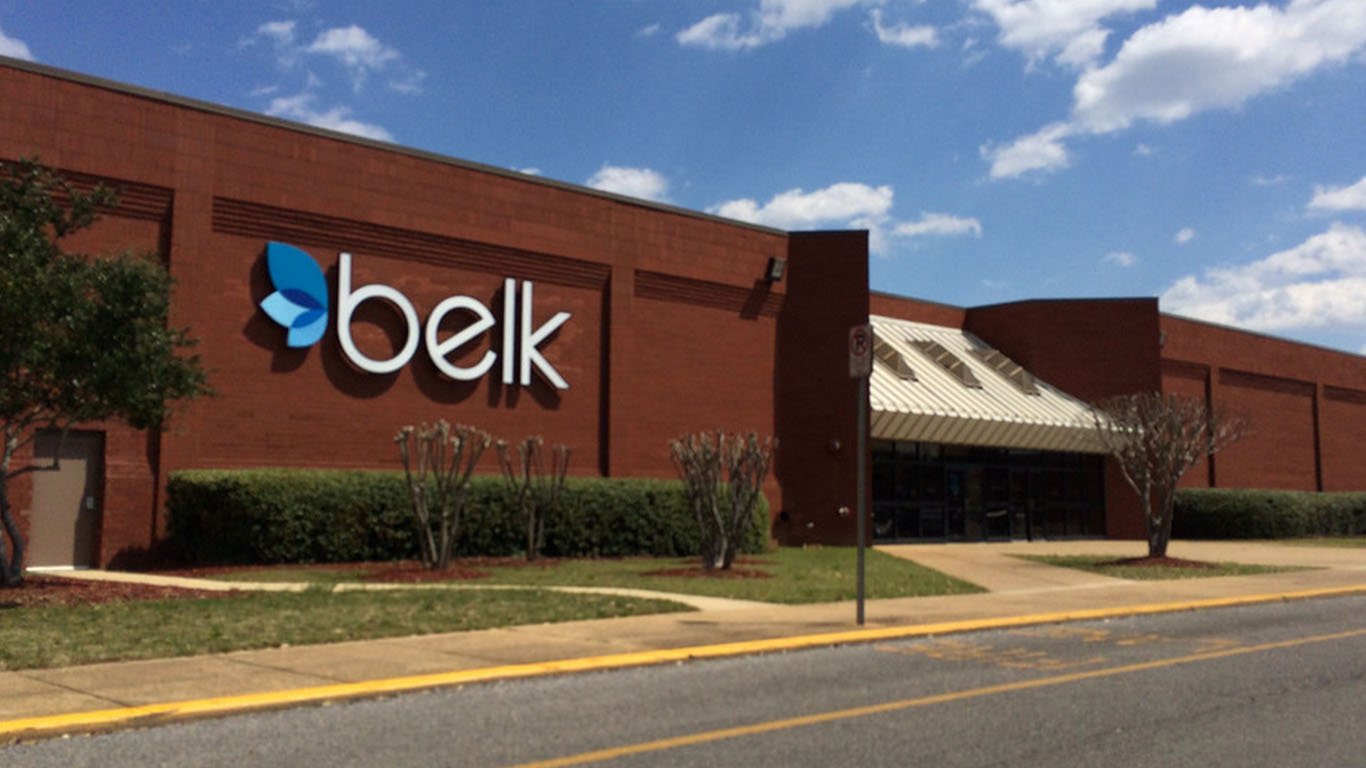
23. Belk
> Industry: Retail
Belk is a department store chain with locations across the southeastern United States. The company, like many other retailers, suffered from a lack of foot traffic throughout the pandemic and filed for bankruptcy protection in January.
Belk emerged from bankruptcy less than a month after filing. The Chapter 11 protection allowed Belk to shed around $450 million of its debt, all without having to shutter any of its nearly 300 retail locations.
24. Libbey
> Industry: Glassware
Toledo-based Libbey is one of the leading providers of glassware to bars and restaurants. As dining establishments closed, sales at Libbey suffered. After sales dropped from about $10 million per week before the pandemic to less than half of that throughout much of March 2020, the company declared bankruptcy.
In November, Libbey emerged from bankruptcy, reducing its debt and securing roughly a quarter of a billion dollars of loans.
Sponsored: Find a Qualified Financial Advisor
Finding a qualified financial advisor doesn’t have to be hard. SmartAsset’s free tool matches you with up to 3 fiduciary financial advisors in your area in 5 minutes. Each advisor has been vetted by SmartAsset and is held to a fiduciary standard to act in your best interests. If you’re ready to be matched with local advisors that can help you achieve your financial goals, get started now.
Thank you for reading! Have some feedback for us?
Contact the 24/7 Wall St. editorial team.
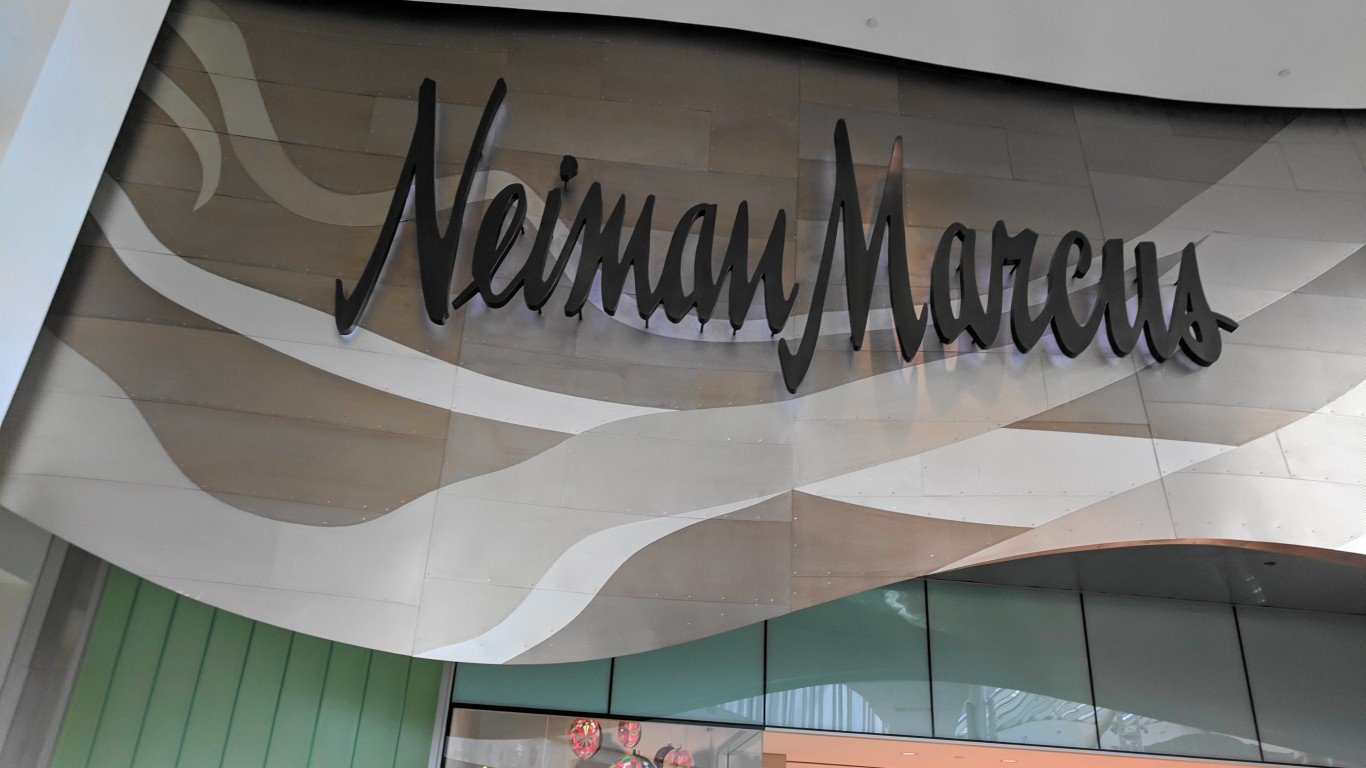
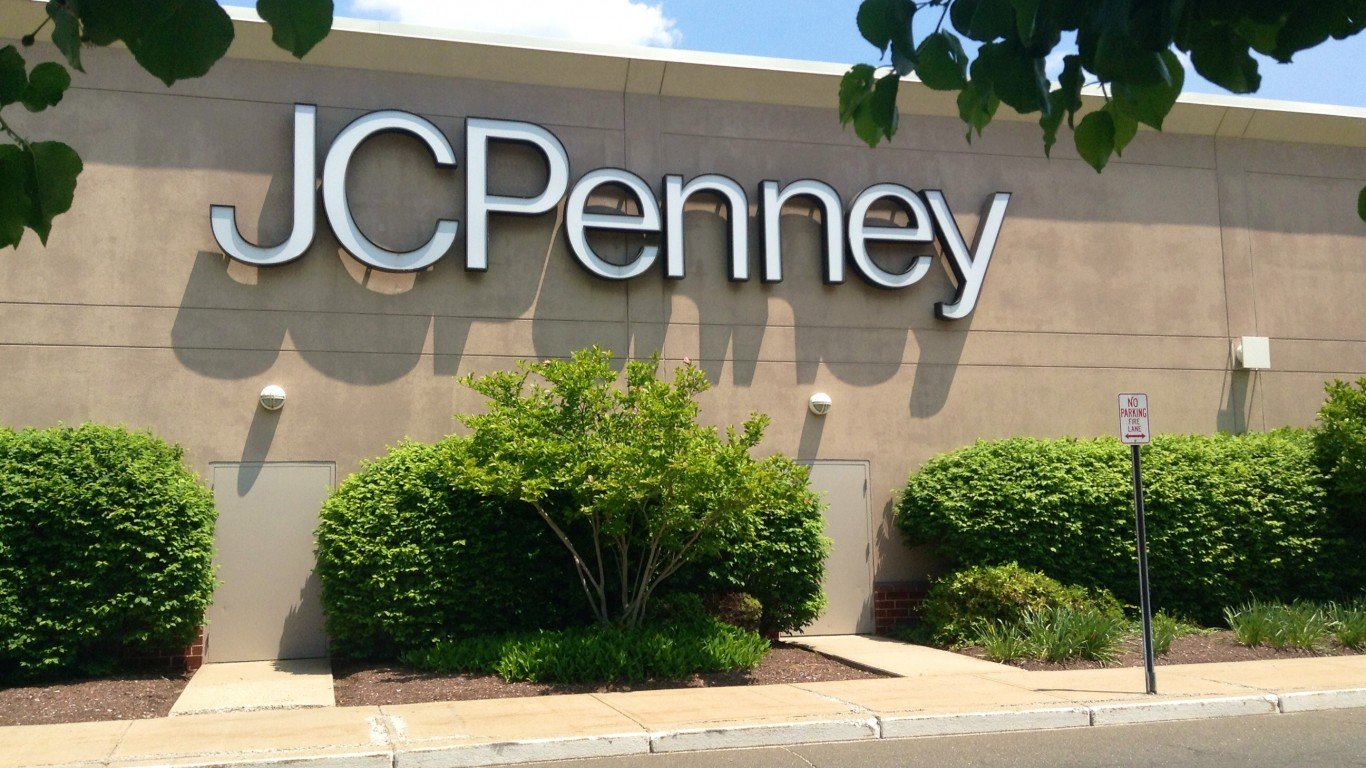
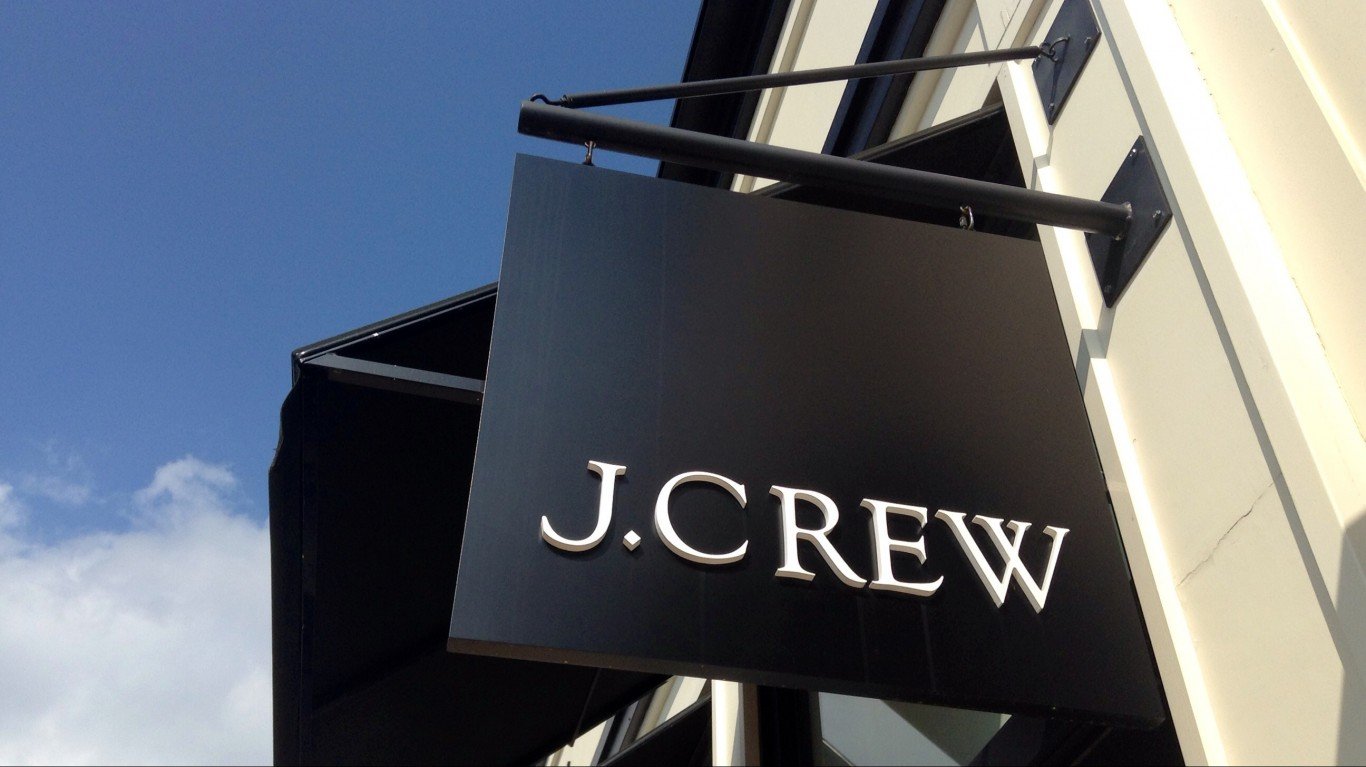

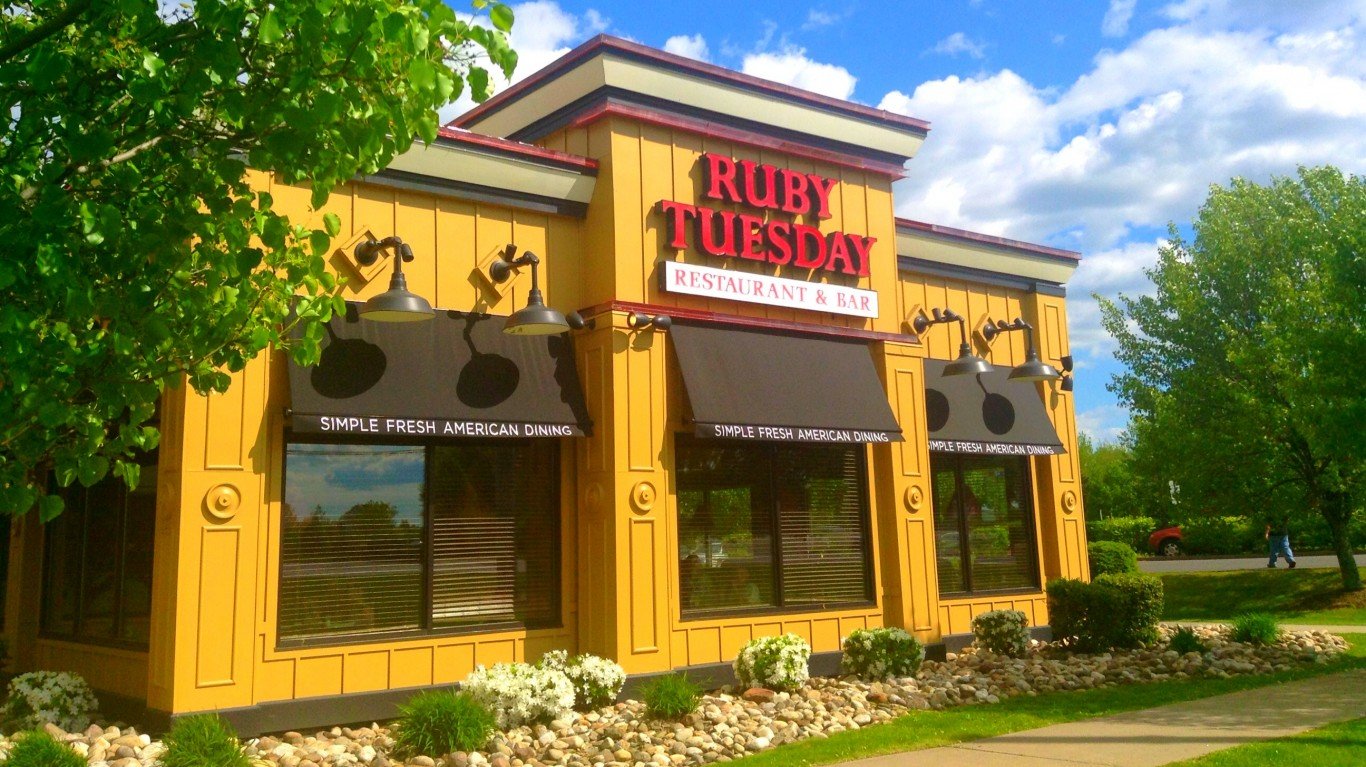
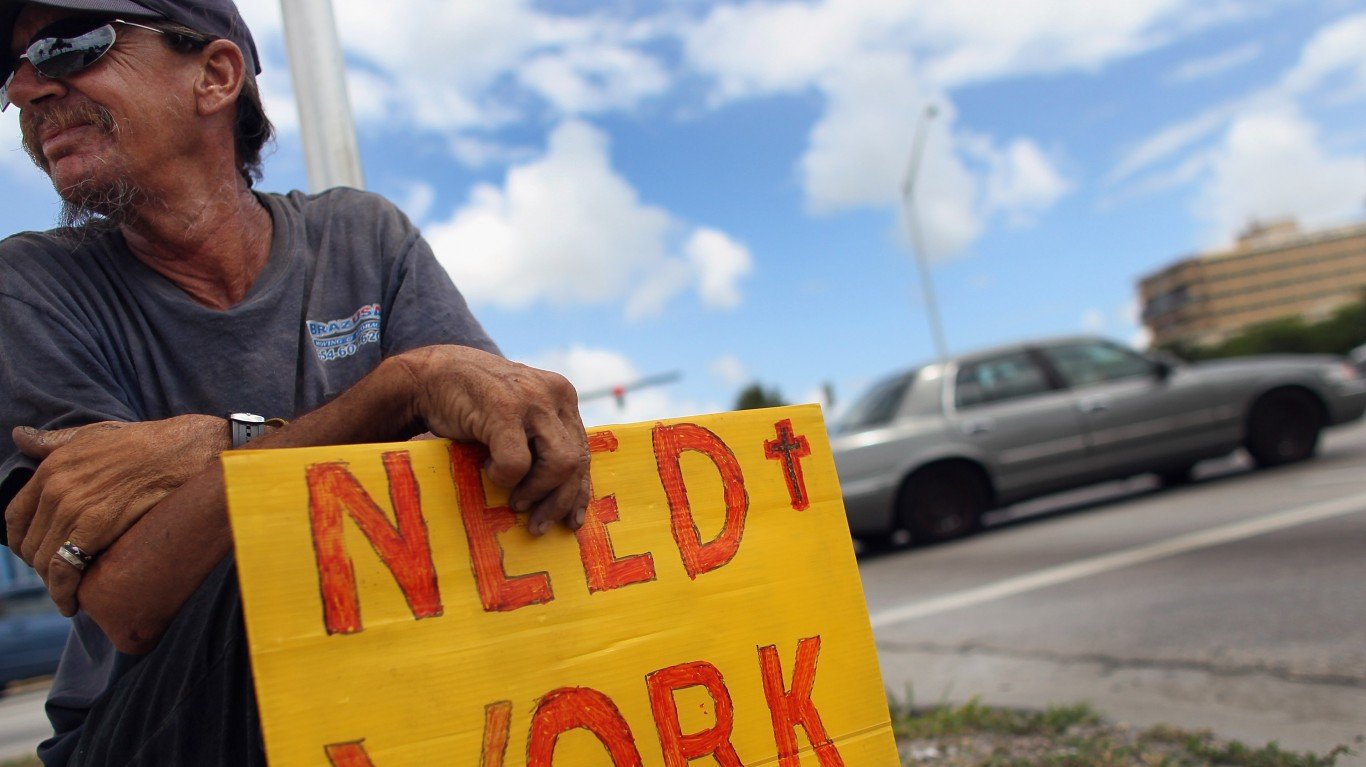 24/7 Wall St.
24/7 Wall St.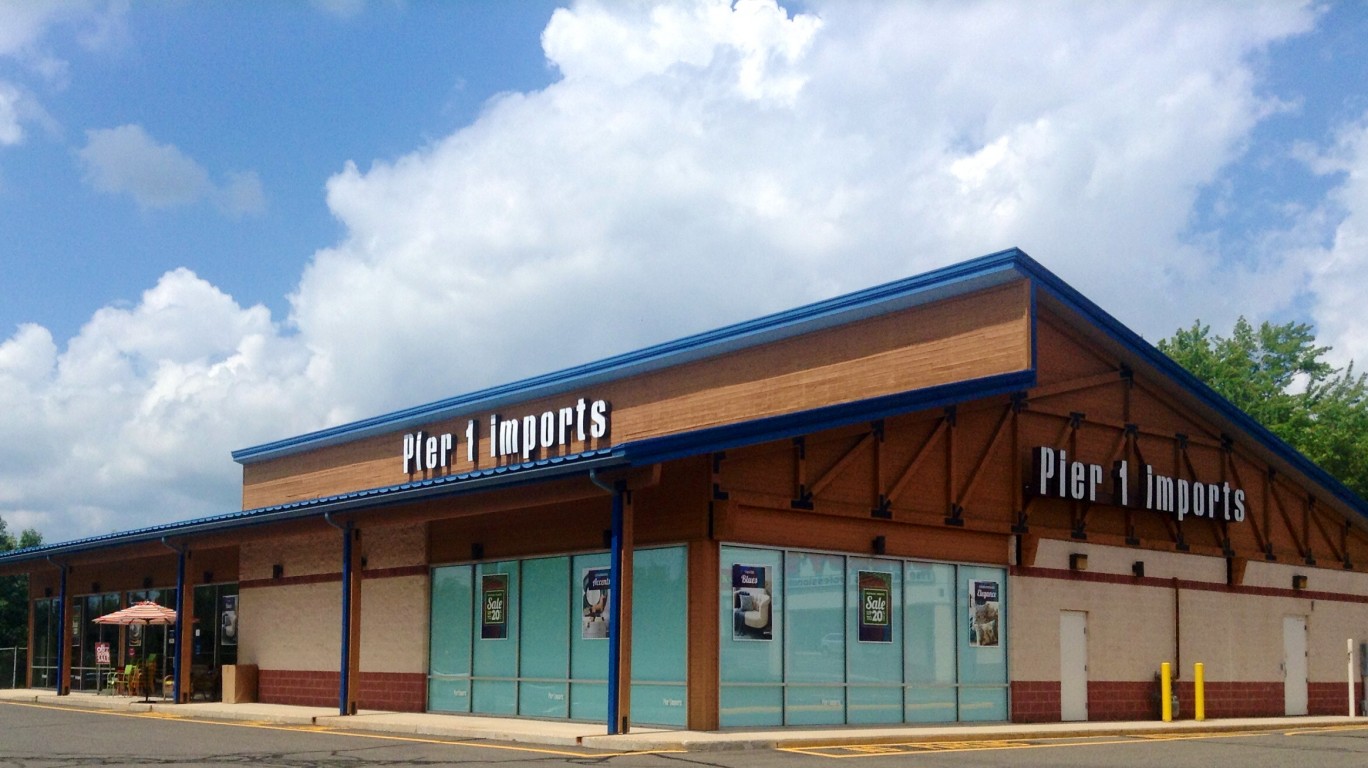
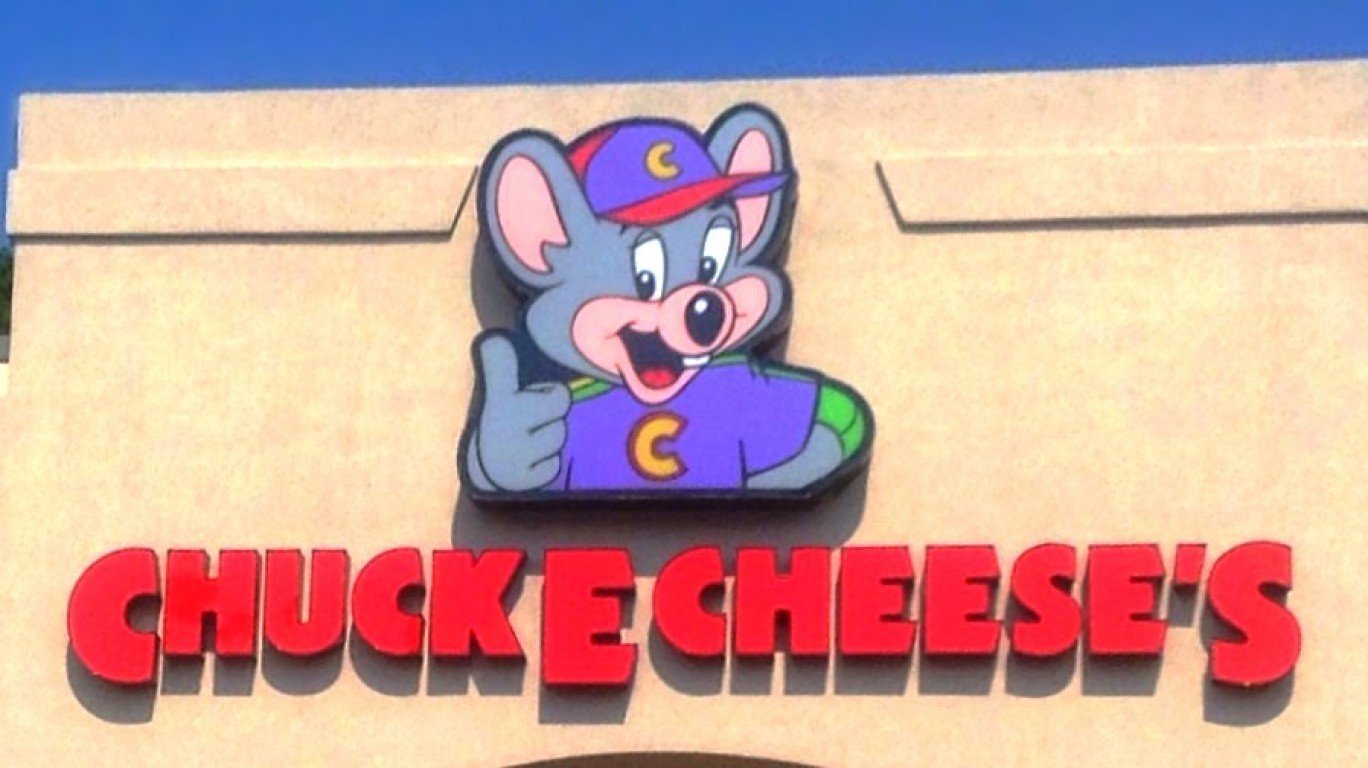
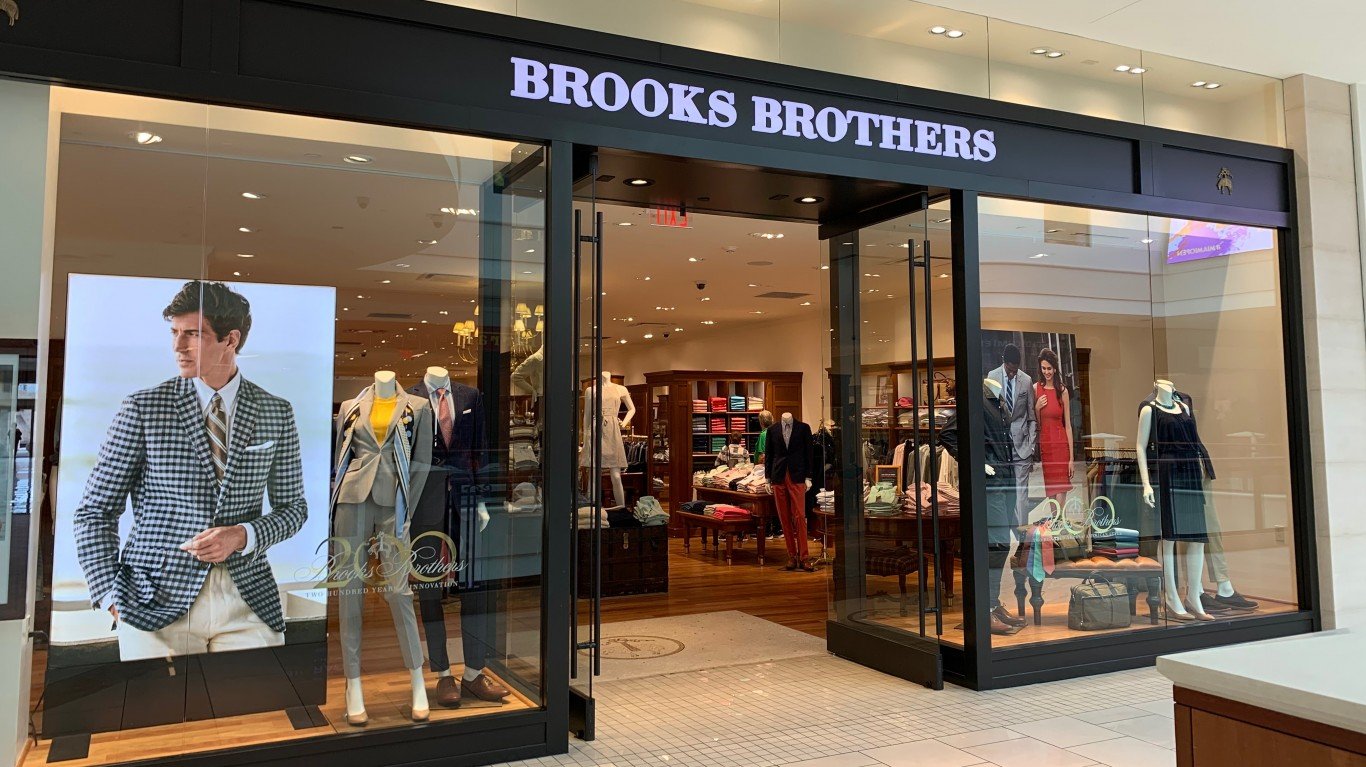
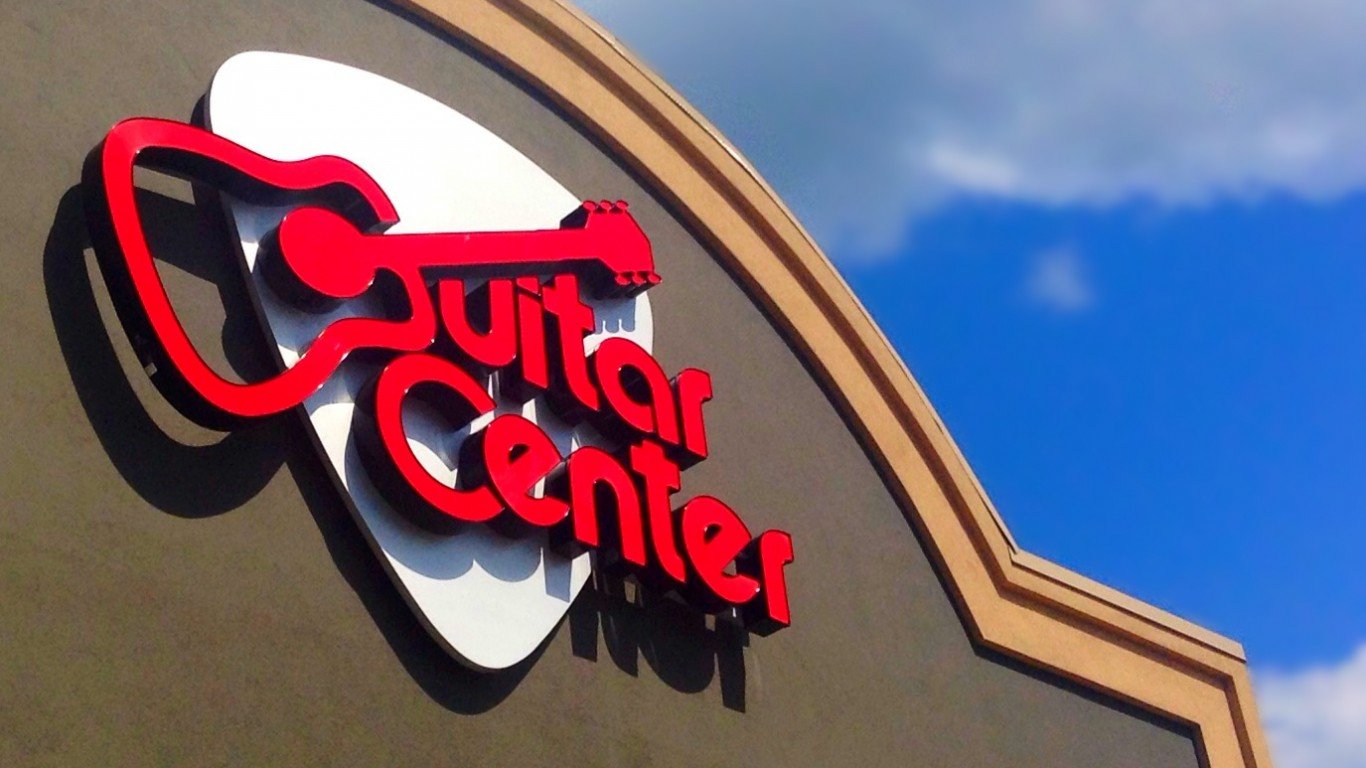
![dean & deluca by [puamelia] dean & deluca by [puamelia]](https://247wallst.com/wp-content/uploads/2021/05/imageForEntry17-YGS.jpg)

 24/7 Wall St.
24/7 Wall St.